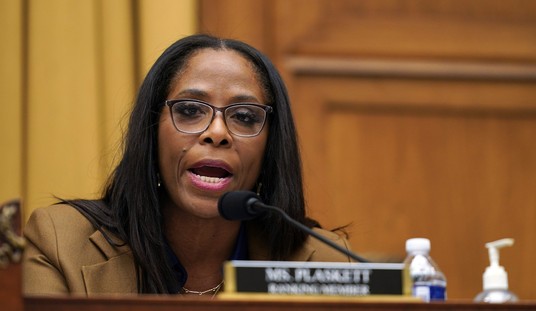Breaking news from the Washington Post tonight where we’re learning new details on the “secret FBI source” who met with advisers to the Trump campaign:
Secret FBI source for Russia investigation met with three Trump advisers during campaign. Great and well-considered story by my Post colleagues to come: https://t.co/JqMPKFB5QZ
— Josh Dawsey (@jdawsey1) May 19, 2018
According to the Post, the source is:
A retired American professor in 2016 began working as a secret informant for the FBI as it investigated Russia’s interference in the U.S. presidential campaign, and he contacted three Trump advisers in the summer and fall of that year, according to people familiar with his activities.
The paper is not naming the retired professor at this time:
The role played by the source is now at the center of a contentious battle that has pitted President Trump against his own Justice Department and fueled the president’s attacks on the special counsel investigation. The Washington Post has confirmed the informant’s identity with multiple people familiar with his role but is not reporting his name following warnings from U.S. intelligence officials that exposing him could endanger him or his contacts.
OK, so how many “retired American professors” were talking to Trump advisers? We’ll no doubt know his identity shortly.
Recommended
Earlier, the New York Time reported on the informant but did not list his job description as well:
The informant is “an American academic who teaches in Britain” and “well-known in Washington circles, having served in previous Republican administrations.” Professor Plum? https://t.co/sqTCaTkDRO
— Kurt Andersen (@KBAndersen) May 19, 2018
F.B.I. Used Informant to Investigate Russia Ties to Campaign, Not to Spy, as Trump Claims via @NYTimes https://t.co/yZiWEDmpHB
— Maggie Haberman (@maggieNYT) May 19, 2018
From the New York Times:
In fact, F.B.I. agents sent an informant to talk to two campaign advisers only after they received evidence that the pair had suspicious contacts linked to Russia during the campaign. The informant, an American academic who teaches in Britain, made contact late that summer with one campaign adviser, George Papadopoulos, according to people familiar with the matter. He also met repeatedly in the ensuing months with the other aide, Carter Page, who was also under F.B.I. scrutiny for his ties to Russia.
The role of the informant is at the heart of the newest battle between top law enforcement officials and Mr. Trump’s congressional allies over the F.B.I.’s most politically charged investigations in decades. The lawmakers, who say they are concerned that federal investigators are abusing their authority, have demanded documents from the Justice Department about the informant.
“But he’s not a spy!” they shouted!
Update. How exactly does the New York Times know this as a fact?
Note how the Times asserts something as fact here that it cannot know is a fact pic.twitter.com/6J7aI8bQWn
— John Podhoretz (@jpodhoretz) May 19, 2018
Update 2. More reaction:
This headline is comically self-refuting. pic.twitter.com/Fl9PgCXcqU
— Mark Hemingway (@Heminator) May 19, 2018
This is the most embarrassing headline I have possibly ever read. https://t.co/O96r9P1bnq
— Mollie (@MZHemingway) May 19, 2018
Update 3. Does anyone like the NYT headline?
https://twitter.com/KFILE/status/997664908165738496
***
























Join the conversation as a VIP Member